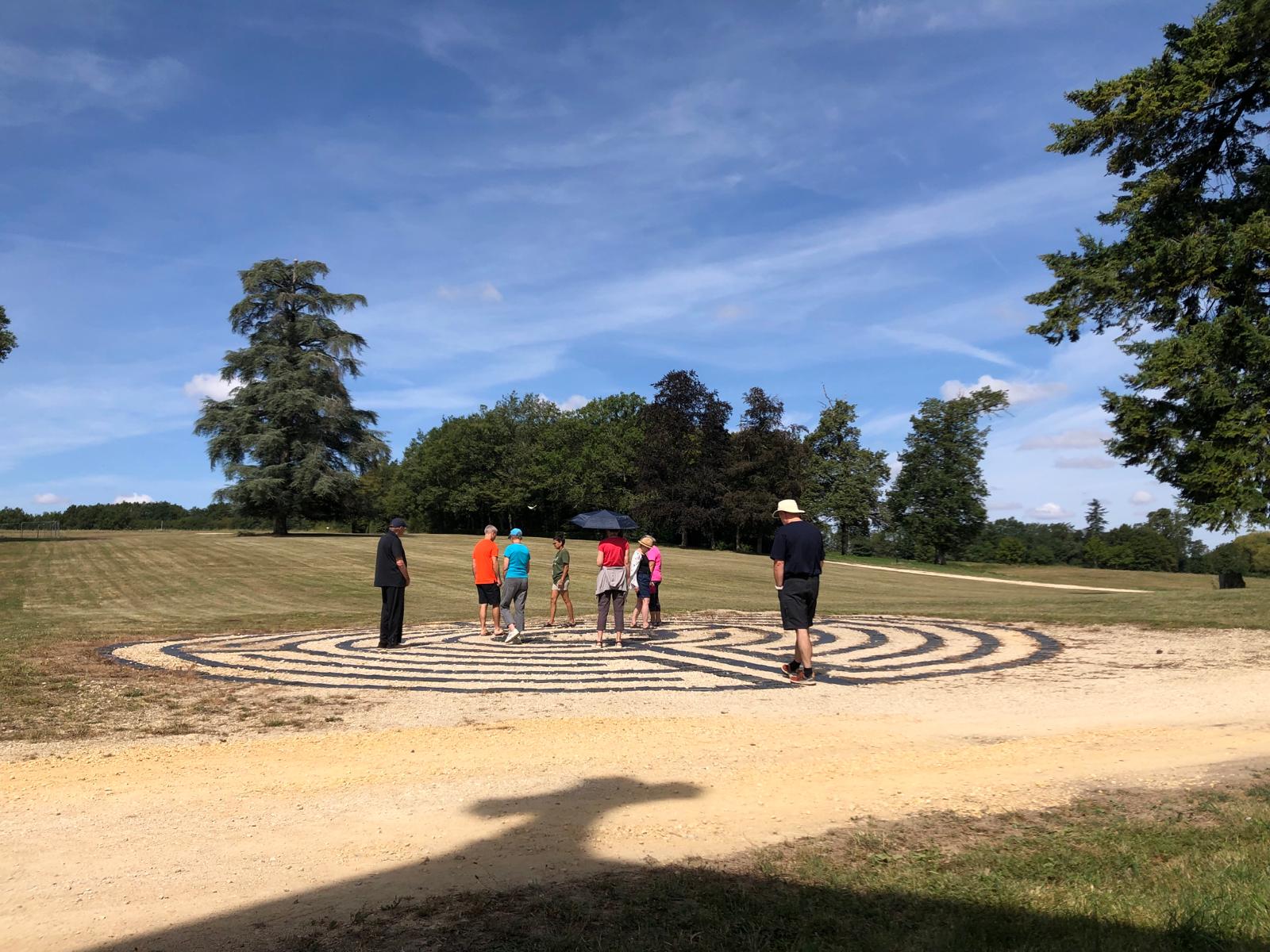The three vows that are taken by Benedictine monks and nuns and Benedictine Oblates, who are committing themselves to live their lives according to the ‘Rule of St Benedict’, are ‘Obedience, Conversion and Stability’.
Let’s look at the second vow ‘Conversion’ first. In the Benedictine tradition by ‘Conversion’ is meant a continual conversion of the way you lead your life and the way you behave to others. He is not talking about a one-off conversion experience like the one of St Paul on the road to Damascus. Although it may happen, that at the start of our journey there is a ‘one-off’ experience. During either a period of deep grief or loss or a moment of intense joy we are graced with a sudden deep spiritual insight, which helps us to turn away from our usual preoccupation with ordinary reality. At that moment we experience profoundly that there is more, that there is an Ultimate Reality that penetrates and upholds our ordinary reality. The early Church Fathers called this the moment of ‘conversion’ or ‘metanoia’, a change of heart and mind, an insightful conversion, which allows us to temporarily step over the threshold between different levels of perception and consciousness, to become aware of the Divine reality that unfolds us.
That experience – or sometimes just an unaccountable longing – leads us to a strong call to go deeper in prayer, to rediscover for ourselves this Reality and our connection with it. This is often the moment we discover meditation, contemplative prayer and start on the journey with enthusiasm. Meditation soon leads us into silence and “in a deep creative silence we meet God in a way that transcends all our powers of intellect and language.” (John Main ‘Word into Silence’)
Unfortunately after this initial ‘honeymoon’ period we are more often than not faced with all our whirling thoughts relating to our ordinary reality, and touching this deep silence seems merely a dream. And yet we need to start each day anew, whatever happens, by sitting down in all faithfulness to our twice daily period of meditation with loving commitment. Then we will experience that committed meditation, regardless of any experiences, leads to transformation. Without us really realizing it we move away from who we think we are in all our fragmentation towards “the creative wholeness that we possess, and begin to feel that we know ourselves for the first time.” (John Main ‘Word into Silence’) This is what St Benedict meant by his interpretation of conversion as a continual process. It is a continual willingness to turn towards Ultimate Reality in meditation and prayer, which will strengthen our intuitive knowledge of that Reality and will allow us to live from that perspective. “The all-important aim in Christian Meditation is to allow God’s mysterious and silent presence within us to become more and more not only a reality, but the reality in our lives; to let it become that reality which gives meaning, shape and purpose to everything we do, to everything we are.” (John Main)
This emphasis on each of us containing within ourselves a spark of the Divine was a belief held by many of the early Church fathers, such as Irenaeus, Clement of Alexandria and Origen; it was considered an apostolic doctrine in the first few centuries. But it was also a main tenet of the Gnostics. This may well have been the reason that this view was later discredited and supplanted by the ‘orthodox’ interpretation, which stressed that we were in truth made in the ‘image’ of God, but that in the ‘fall’ this ‘image’ was completely shattered. St Augustine stressed that therefore only by the grace of Christ could we be saved. We ourselves could do nothing, which was the opposite of the message of Jesus in the ‘Gospel of Thomas’. The opposition to Augustine’ view was also expressed by John Cassian in his dispute with him. Cassian based his view of the importance of effort and personal responsibility, as well as the role of grace, on the discipline of prayer, the experience and the teaching flowing from this by the Desert Fathers and Mothers. Cassian’s view was shared by many in these early centuries and by John Main amongst others in our present century.
It is therefore not surprising that finding the true interpretation of Jesus’ sayings in the Gospel of Thomas is similar to the deeply attentive reading of Scripture that Origen stressed: ‘lectio divina’, which according to him both led to and was aided by contemplative prayer. This profound intuitive engagement with the text was considered to result in a meeting with the presence of Christ, and consequently would lead to a true understanding of the spiritual meaning of Scripture. This spiritual understanding, in turn, would lead to a complete transformation of consciousness: a ‘metanoia’, a turning around. Then we would see reality as it truly is, and experience that in our essence we are already one with the Divine through the consciousness of Christ that dwells in our hearts.
But the emphasis on personal effort and deep intuitive understanding, rather than pure belief in the accepted teaching, put the Gospel of Thomas outside the canon of accepted orthodox Scripture of the 4th century with its emphasis on the literal surface interpretation.
Thomas’ Jesus is very aware of the difficulty of the effort required to seeing Ultimate Reality: “The Father’s Kingdom is spread out upon the earth, and people do not see it.” The main difficulty being that we have covered over the Divine spark within us by being focused on our material body and its needs: “Jesus said, I took my stand in the midst of the world, and in the flesh I appeared to them. I found them all drunk, and I did not find any of them thirsty. My soul ached for the children of humanity, because they are blind in their hearts and do not see, for they came into the world empty, and they also seek to depart from the world empty. But now they are drunk. When they shake off their wine, then they will repent.”
This Gospel challenges us to let go of our habitual ways of perception dictated by our material being, the ‘ego’, which make us “drunk” and “blind”. We do not need to let go off the ‘ego’ itself, but of the disordered drives/desires that are a product of our survival needs, upbringing and environment. All we need to do is to wake up and discover who we truly are. This same exhortation to ‘wake up!’ and ‘Be alert’ is also found in the Synoptic Gospels. This re-discovery of our true nature is the most important element in our life, although it is not easy: “Jesus said, let one who seeks not stop seeking until one finds. When one finds, one will be troubled. When one is troubled, one will marvel and will rule over all.” It is troubling to realise that the reality we have accepted as the only objective and permanent reality is in fact shaped by the thoughts, images and needs of our material being. But if we persevere, we can part the veil of these illusions and become aware of our true nature and the true nature of reality. The result will then be a real sense of wonder.
Image by Rebecca Matthews from Pixabay







